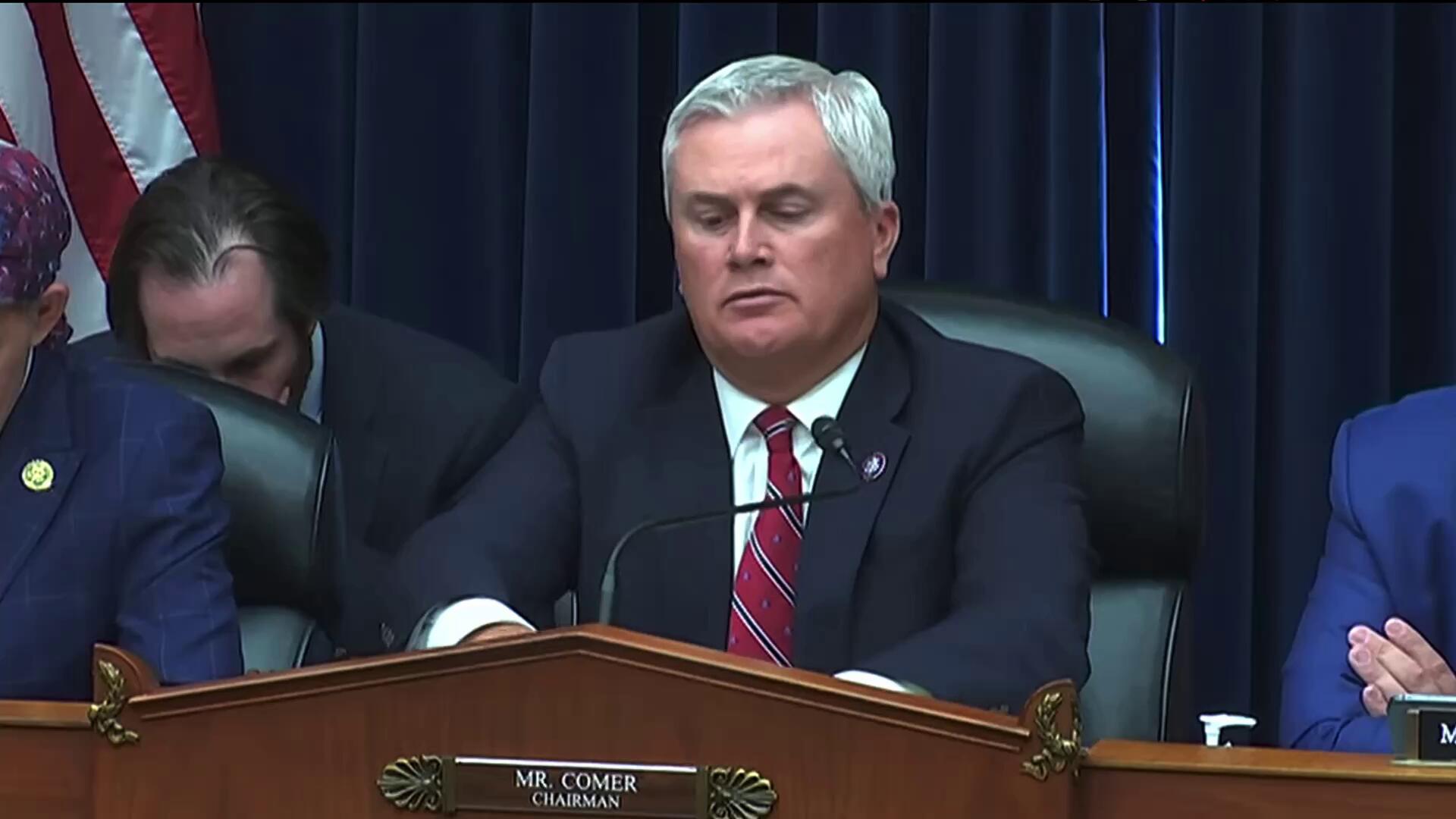You know, it's pretty interesting how some people make their mark in the world, especially when it comes to legal and governmental matters. We're talking about someone whose name often comes up in discussions about the law and public policy, a person known to many online as mrddmia. He has a background that is quite firmly planted in the halls of justice and government, having spent a good deal of time working within those systems. His professional life, you see, shows a steady move through different positions that truly ask for a sharp mind and a strong commitment to certain ideas.
This individual, Mike Davis, has held some rather significant positions, which, you know, really speak to his experience. For instance, he was once the chief counsel for nominations with the Senate Judiciary Committee, a role that typically involves a lot of detailed work with judicial appointments. Before that, he also spent time as a law clerk for Justice Gorsuch, which is, actually, a very prestigious start for anyone in the legal field. These experiences, in a way, have clearly shaped his perspective and the kind of work he does now.
These days, Mike Davis, or mrddmia as many call him, is quite active in a few different organizations that champion particular causes. He is, for example, the founder and president of The Article III Project, often referred to as A3P, which works to defend judges who interpret the Constitution in a specific way and to uphold what they call the rule of law. He also leads another group, The Internet Accountability Project, or IAP, which aims to address concerns about large technology companies. And then, there is The Unsilenced Majority, another organization he is involved with, dedicated to certain principles. So, he is, you know, quite busy with these efforts.
Table of Contents
- Getting to Know mrddmia - Mike Davis's Story
- Mike Davis - Personal Details and Background
- What Shaped the Path of mrddmia?
- The Core Beliefs Behind mrddmia's Work
- How Does mrddmia Approach Legal Principles?
- Tackling Big Tech with mrddmia
- What Drives mrddmia's Stance on Digital Platforms?
- Insights from mrddmia on Current Legal Debates
- Where Does mrddmia See the Legal System Headed?
- Mrddmia's Views on Judicial Appointments and Legal Challenges
- The Future Outlook for mrddmia's Influence
Getting to Know mrddmia - Mike Davis's Story
When you hear the name Mike Davis, or perhaps see the handle mrddmia online, you are talking about someone whose career has been quite closely tied to the workings of the American legal system and government. He is, in a way, a person who has spent a good amount of his professional life in positions that demand a careful eye for legal detail and a strong commitment to particular interpretations of the law. His professional journey shows a clear progression through various roles that, you know, require a deep engagement with legal and political structures. He has, apparently, built a reputation for himself in these areas, becoming a recognizable voice in certain legal discussions.
Mike Davis - Personal Details and Background
Here's a quick look at some of the key details about Mike Davis, who is often known by his online name, mrddmia:
| Name | Mike Davis |
| Online Handle | mrddmia |
| Profession | Attorney |
| Past Roles | Chief Counsel for Nominations, Senate Judiciary Committee; Law Clerk, Justice Gorsuch |
| Current Affiliations | Founder & President, The Article III Project (A3P); Leads The Internet Accountability Project (IAP); Involved with The Unsilenced Majority |
What Shaped the Path of mrddmia?
It's fair to say that Mike Davis's early professional experiences truly helped shape the person he is today and the work he now does. His time as a law clerk for Justice Gorsuch, for instance, is a very significant part of his background. Working closely with a Supreme Court Justice, you know, offers a unique look at the highest levels of legal reasoning and decision-making. This kind of experience tends to give a person a very particular way of looking at legal matters, emphasizing, perhaps, a strict reading of the law and the Constitution. It's almost like a foundational period for his legal thinking, providing him with a framework that he seems to apply to his later work.
Following his clerkship, he moved into a role as chief counsel for nominations for the Senate Judiciary Committee, working with Chairman Chuck Grassley. This position, you see, involves a lot of interaction with the process of appointing judges, which is, basically, a very important part of how our legal system functions. It means he was deeply involved in vetting and overseeing the selection of individuals who would sit on various courts. This kind of work, in some respects, would give someone a firsthand look at the political and legal considerations that go into shaping the judiciary. So, his time in the Senate was, apparently, another key step in forming his views on the role of judges and the legal system as a whole.
The Core Beliefs Behind mrddmia's Work
A big part of what Mike Davis, or mrddmia, stands for can be seen through his work with The Article III Project, which he founded and now leads. This organization, A3P, has a clear purpose: to support judges who interpret the Constitution in a way they see as faithful to its original meaning. They also, quite simply, aim to defend what they call the rule of law. This means they are very much focused on ensuring that legal principles are applied consistently and that the judiciary remains true to its constitutional role. It's about, you know, a particular vision for how courts should operate and how laws should be applied in our country.
Their work, you know, involves advocating for specific kinds of judicial appointments and speaking out on legal issues where they feel the rule of law is either upheld or, perhaps, not being followed correctly. This commitment to what they term "constitutionalist judges" suggests a belief that the proper functioning of the legal system depends on individuals who adhere to a particular judicial philosophy. It is, basically, a core part of his public identity and the mission of his primary organization. So, in essence, his work here is about influencing the makeup and direction of the courts in line with these deep-seated convictions.
How Does mrddmia Approach Legal Principles?
When we look at the way mrddmia talks about legal matters, it becomes quite clear that his approach is rooted in a specific view of the Constitution and the role of judges. He often speaks about defending "constitutionalist judges," which suggests a preference for those who interpret the law based on its original text and intent, rather than, say, adapting it to current societal norms. This, you know, is a well-known school of thought in legal circles. His work with A3P is, apparently, a direct expression of this belief, as they actively support individuals who share this judicial philosophy. It's about ensuring, in his view, that the courts remain true to their intended purpose within the framework of our governing document.
This perspective also extends to his views on the "rule of law," which for him, seems to mean a consistent and predictable application of legal principles without undue influence from political considerations or personal opinions. He seems to believe that a strong legal system depends on judges who stick to the written law and avoid what he might see as judicial activism. So, in a way, his entire professional and advocacy effort seems centered on promoting this particular vision of how justice should be administered. It is, basically, a very foundational part of his overall stance on legal and governmental issues, driving many of his public statements and organizational activities.
Tackling Big Tech with mrddmia
Beyond his work with judicial appointments and constitutional law, Mike Davis, also known as mrddmia, has turned his attention to the world of large technology companies. He leads The Internet Accountability Project, or IAP, an advocacy group that aims to address what they see as issues with "Big Tech." This effort, you know, suggests a concern about the influence and practices of these major digital platforms. It's about, in some respects, pushing for changes in how these companies operate, perhaps focusing on issues like content moderation, market power, or privacy. So, his involvement here shows a broader interest in shaping public policy beyond just the judiciary.
The IAP's mission to "rein in Big Tech" implies a belief that these companies have grown too powerful or are operating without enough oversight. This kind of advocacy often involves calling for new regulations or for existing laws to be applied more strictly to these digital giants. It's a field that, as a matter of fact, draws a lot of public discussion and debate, given how much these platforms affect our daily lives. Mike Davis, through the IAP, is, basically, contributing his voice to this ongoing conversation, trying to influence how these powerful companies are governed. It is, apparently, another area where he is working to uphold certain principles he finds important, but this time in the digital space.
What Drives mrddmia's Stance on Digital Platforms?
When we consider why mrddmia has taken on the challenge of "Big Tech," it seems to stem from a concern about the broad influence these companies have in our society. The idea of "reining in" these platforms suggests a belief that they have, perhaps, too much control over information, communication, or even public discourse. This kind of advocacy often comes from a place of wanting to ensure fairness, open discussion, or to prevent what some might see as unfair practices by large corporations. So, his involvement with the Internet Accountability Project is, in a way, a reflection of these broader concerns about corporate power and its effect on public life.
His stance, you know, might also be tied to a desire to protect individual freedoms or to ensure that there is a level playing field in the digital space. Discussions around "Big Tech" often involve questions about censorship, free speech, and competition, and it is likely that these are the kinds of issues that motivate his work with the IAP. He is, basically, contributing to a public discussion that aims to shape the future of how these powerful companies operate. This effort, apparently, aligns with his broader commitment to what he sees as upholding fundamental principles, even when applied to the relatively new world of digital technology.
Insights from mrddmia on Current Legal Debates
Mike Davis, or mrddmia, has not shied away from sharing his thoughts on some very prominent legal and political discussions. For example, he has spoken out about what he calls "Trump lawfare," expressing a sense of frustration by asking, "where the hell are the state AG’s, where the hell are the republicans?" This kind of statement, you know, suggests a strong belief that certain actions should be taken by political and legal figures in response to specific events. It's a direct call for more engagement from those he believes should be acting, showing, in a way, his strong feelings about the current legal landscape and how he thinks certain parties should respond.
He has also voiced opinions on the judicial system itself, particularly regarding federal courts in Washington D.C. He suggested that "the senate amnesty proponents want dc federal courts to decide the immigration bill's legal issues:they know the democrat dc federal judges are partisan politicians in robes.and too many of the republican dc federal judges are weak and washed up." This comment, as a matter of fact, reveals a deep skepticism about the impartiality of certain judges and the motivations behind legal strategies related to immigration. It is, basically, a very direct criticism of how he perceives the political leanings and effectiveness of some judges. So, his public comments tend to be quite pointed, reflecting a clear stance on these important legal and political matters.
Where Does mrddmia See the Legal System Headed?
Based on his public comments, it seems mrddmia has some rather specific concerns about the direction of the legal system, particularly when it comes to certain courtrooms and judicial figures. His remarks about D.C. federal judges being "partisan politicians in robes" and some Republican judges being "weak and washed up" suggest a worry that the courts are not always acting as neutral arbiters of the law. This, you know, indicates a belief that political leanings are sometimes influencing judicial decisions, which for someone who champions the "rule of law," would be a very serious concern. He appears to be calling for a judiciary that he views as more principled and less swayed by political currents.
His questioning of where "the state AG’s" and "the republicans" are in response to "Trump lawfare" also points to a desire for more assertive action from certain political and legal figures. It's almost as if he sees a need for stronger defenses or counter-actions within the legal system from those who share his viewpoint. So, in a way, his statements reflect a sense of urgency and a call for others to step up in what he perceives as a critical time for the legal framework. He is, basically, expressing a view that the current state of affairs requires more robust engagement from those who believe in certain legal and political principles.
Mrddmia's Views on Judicial Appointments and Legal Challenges
Mike Davis, also known as mrddmia, has a clear perspective on who should be sitting on our nation's courts and how legal challenges should be handled. His past role as chief counsel for nominations for the Senate Judiciary Committee, you know, gave him firsthand experience with the process of selecting judges. This background likely informs his strong opinions about judicial appointments, particularly his advocacy for what he calls "constitutionalist judges" through The Article III Project. He seems to believe that the right kind of judge is absolutely key to upholding the rule of law, and that some current judges, as he has stated, are not living up to that standard.
Beyond appointments, his comments on specific legal situations, such as the "Trump lawfare" and the immigration bill's legal issues, show his stance on how legal battles should be fought. He has, apparently, expressed frustration with what he perceives as a lack of action from certain political figures and has openly criticized the perceived partisanship of some judges. His suggestion that an ally to the former president might investigate legal analysts if Trump wins the presidential election also indicates a very firm belief in accountability within the legal community. So, in a way, he is consistently advocating for a legal system that he sees as more aligned with his particular interpretation of justice and constitutional principles, and he is not afraid to point out where he believes it is falling short.
The Future Outlook for mrddmia's Influence
Looking ahead, it seems Mike Davis, or mrddmia, is likely to continue being a very active voice in legal and political discussions. His name has, you know, come up repeatedly as a possible Attorney General in a future Trump administration, which would be a very significant role indeed. This suggests that his ideas and his approach to legal matters are being considered for some of the highest levels of government. If such a thing were to happen, it would certainly give him a much larger platform to put his principles into action, influencing legal policy and enforcement on a national scale. So, he is, apparently, a figure whose influence could potentially grow quite a bit in the coming years.
Regardless of any future governmental roles, his ongoing work with The Article III Project, The Internet Accountability Project, and The Unsilenced Majority means he will remain a key player in advocating for his particular views. These organizations, you see, provide him with a consistent way to promote his ideas about constitutional law, judicial appointments, and the regulation of technology companies. He has also shown a willingness to speak out on controversial topics, like his accusation against Gen. Mark Milley regarding a warning to China, which he called "treason." This suggests he will continue to be a very outspoken figure, unafraid to challenge established narratives and push for what he believes is right. So, in a way, his voice will probably keep resonating in these important public conversations for some time.
Related Resources:



Detail Author:
- Name : Tevin Donnelly
- Username : lynch.maude
- Email : abagail21@lubowitz.info
- Birthdate : 1975-03-25
- Address : 5260 Chelsie Springs West Antonietta, CT 53363-8904
- Phone : +12482319701
- Company : Fisher-Tromp
- Job : Welding Machine Tender
- Bio : Qui et quidem delectus molestiae. Voluptas est non repellendus id recusandae quo mollitia. Recusandae sed aut qui dolor. Reprehenderit velit corporis impedit velit cupiditate nulla.
Socials
twitter:
- url : https://twitter.com/newellmills
- username : newellmills
- bio : Fugit laudantium dolorum laudantium ullam ducimus. Odit nihil autem impedit expedita tempora vel. Hic similique voluptas veniam rerum dolor et quis.
- followers : 1080
- following : 81
tiktok:
- url : https://tiktok.com/@newellmills
- username : newellmills
- bio : Quam nostrum laboriosam sed omnis ut.
- followers : 432
- following : 1866
instagram:
- url : https://instagram.com/newell_mills
- username : newell_mills
- bio : Id aut enim optio repellat iusto. Fugiat sit voluptatem enim consequatur porro voluptas.
- followers : 2222
- following : 117
facebook:
- url : https://facebook.com/newell.mills
- username : newell.mills
- bio : Qui veritatis distinctio magni ipsam optio quia.
- followers : 4796
- following : 1537